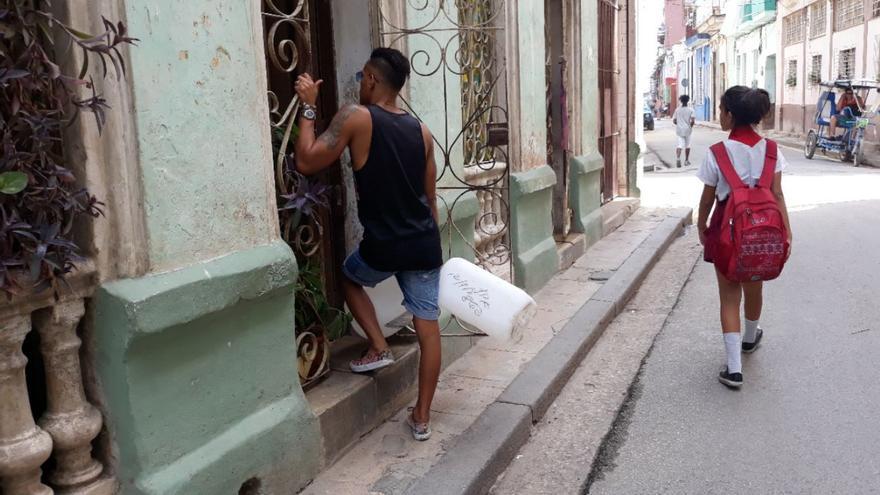
Europa Press (via 14ymedio), Madrid | October 22, 2019 — More than half of households in Cuba live below the poverty line, according to a report by the Cuban Observatory of Human Rights (OCDH) that shows the incapacity of a wide majority of households to live in a dignified manner and with access to basic services like water and electricity.
The study concludes that 55.4% of households make less than $100 per month in a country where the minimum wage is barely $16. One out of every four families earns between $50 and $100, while a little more than 12% don’t make even 20 euros, according to the Observatory of Social Rights, which does not take into account funds from remittances.
Only 11% believe that the money they have is enough to live in dignity, as 45.6% believe that they can get ahead with limitations, and 43.2% label the funds they earn as “insufficient.” Despite that, three out of every four households receive no type of assistance, while 13% have help from the State and 7% from some NGO.
The Obervatory has questioned the regime’s official statistics regarding the employment level, given that only 21.5% of those interviewed said they work full-time and 23.2% have a part-time job.
Of those surveyed, 22% admitted that they have inadequate food and 38.4% consider it repetitive — the diet is based on rice, bread, and beans, while beef and fish are scarce. A third of the population eats two times or fewer per day, says the report, composed from 1,082 cases in 11 of the Island’s 16 provinces.
When it comes to medical attention, more than four out of ten people who recently needed some medication were unable to get it. In this sense, only 18.6% of Cubans find the medicines they need in the Cuban health system.
The report also examines the state of basic provisions and determines that almost 70% of Cubans do not have a permanent water supply: 32% have water between four and five days a week and 28% have it fewer than three days, and 8.1% do not have any drinking water service.
The Observatory has denounced the general living situation in Cuba, where approximately half of the houses need repair work, with 7.6% of the buildings at risk of collapse. Only one out of four houses remains in good condition.
The deficiencies also extend to the electricity supply, unavailable in an uninterrupted form for 80% of the population. Six out of ten citizens affirm that they have suffered up to ten power cuts in recent months, while 18.8% have suffered more than ten.
The executive director of OCDH, Alejandro González Raga, emphasized during the presentation of the study that “it is evidence of the reality that Cuba is experiencing… Not the reality that the Government says, but what Cubans say,” he stressed.
The report, the first of this type published by the Observatory, was compiled from personal interviews carried out between August 15 and September 8 of 2019 and has a margin of error of 3% and a confidence level of 95%.
Translated by: Sheilagh Herrera
